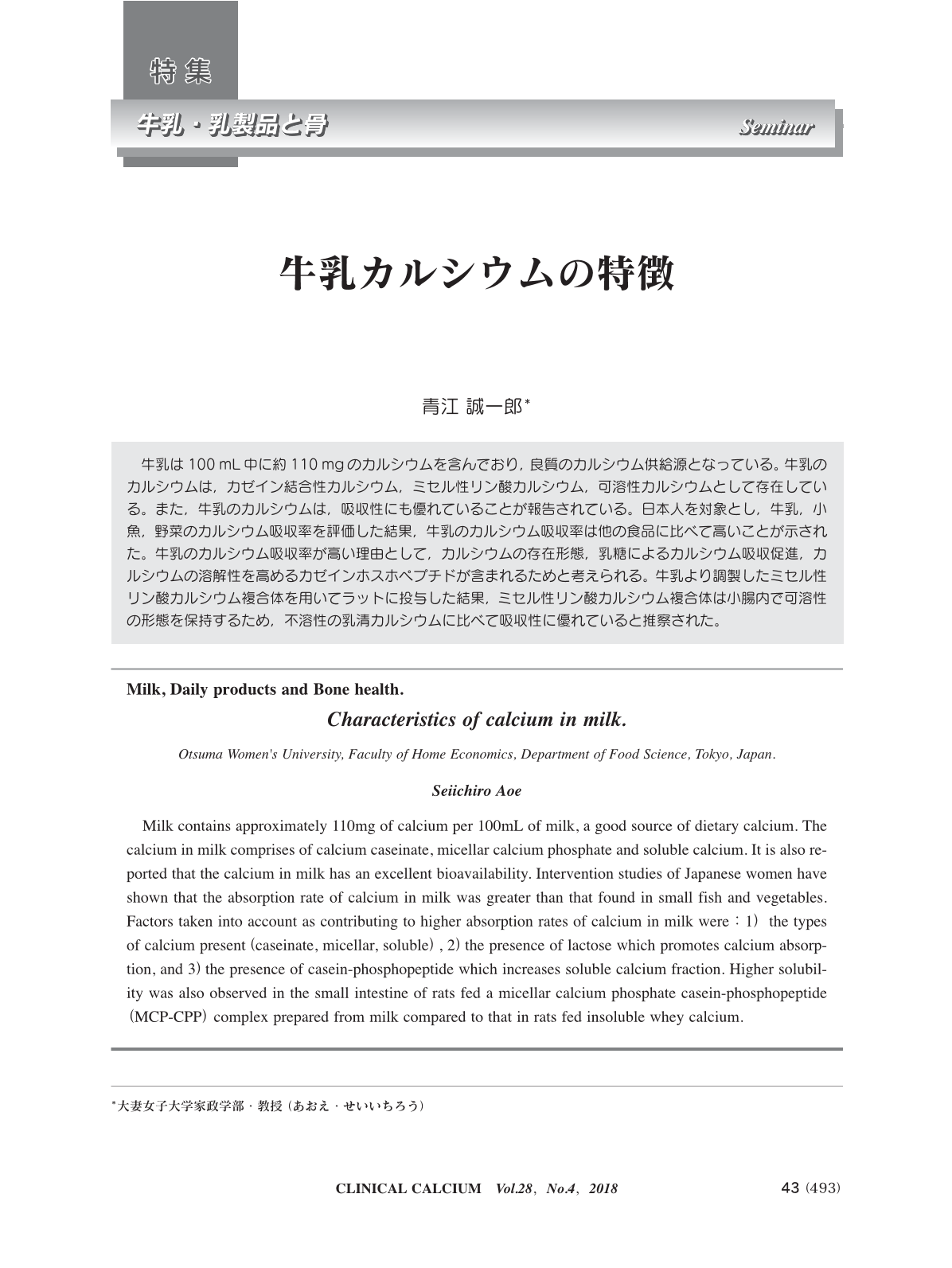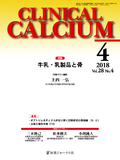Japanese
English
- 有料閲覧
- Abstract 文献概要
- 1ページ目 Look Inside
- 参考文献 Reference
牛乳は100 mL中に約110 mgのカルシウムを含んでおり,良質のカルシウム供給源となっている。牛乳のカルシウムは,カゼイン結合性カルシウム,ミセル性リン酸カルシウム,可溶性カルシウムとして存在している。また,牛乳のカルシウムは,吸収性にも優れていることが報告されている。日本人を対象とし,牛乳,小魚,野菜のカルシウム吸収率を評価した結果,牛乳のカルシウム吸収率は他の食品に比べて高いことが示された。牛乳のカルシウム吸収率が高い理由として,カルシウムの存在形態,乳糖によるカルシウム吸収促進,カルシウムの溶解性を高めるカゼインホスホペプチドが含まれるためと考えられる。牛乳より調製したミセル性リン酸カルシウム複合体を用いてラットに投与した結果,ミセル性リン酸カルシウム複合体は小腸内で可溶性の形態を保持するため,不溶性の乳清カルシウムに比べて吸収性に優れていると推察された。
Milk contains approximately 110mg of calcium per 100mL of milk, a good source of dietary calcium. The calcium in milk comprises of calcium caseinate, micellar calcium phosphate and soluble calcium. It is also reported that the calcium in milk has an excellent bioavailability. Intervention studies of Japanese women have shown that the absorption rate of calcium in milk was greater than that found in small fish and vegetables. Factors taken into account as contributing to higher absorption rates of calcium in milk were:1)the types of calcium present(caseinate, micellar, soluble), 2)the presence of lactose which promotes calcium absorption, and 3)the presence of casein-phosphopeptide which increases soluble calcium fraction. Higher solubility was also observed in the small intestine of rats fed a micellar calcium phosphate casein-phosphopeptide(MCP-CPP)complex prepared from milk compared to that in rats fed insoluble whey calcium.



